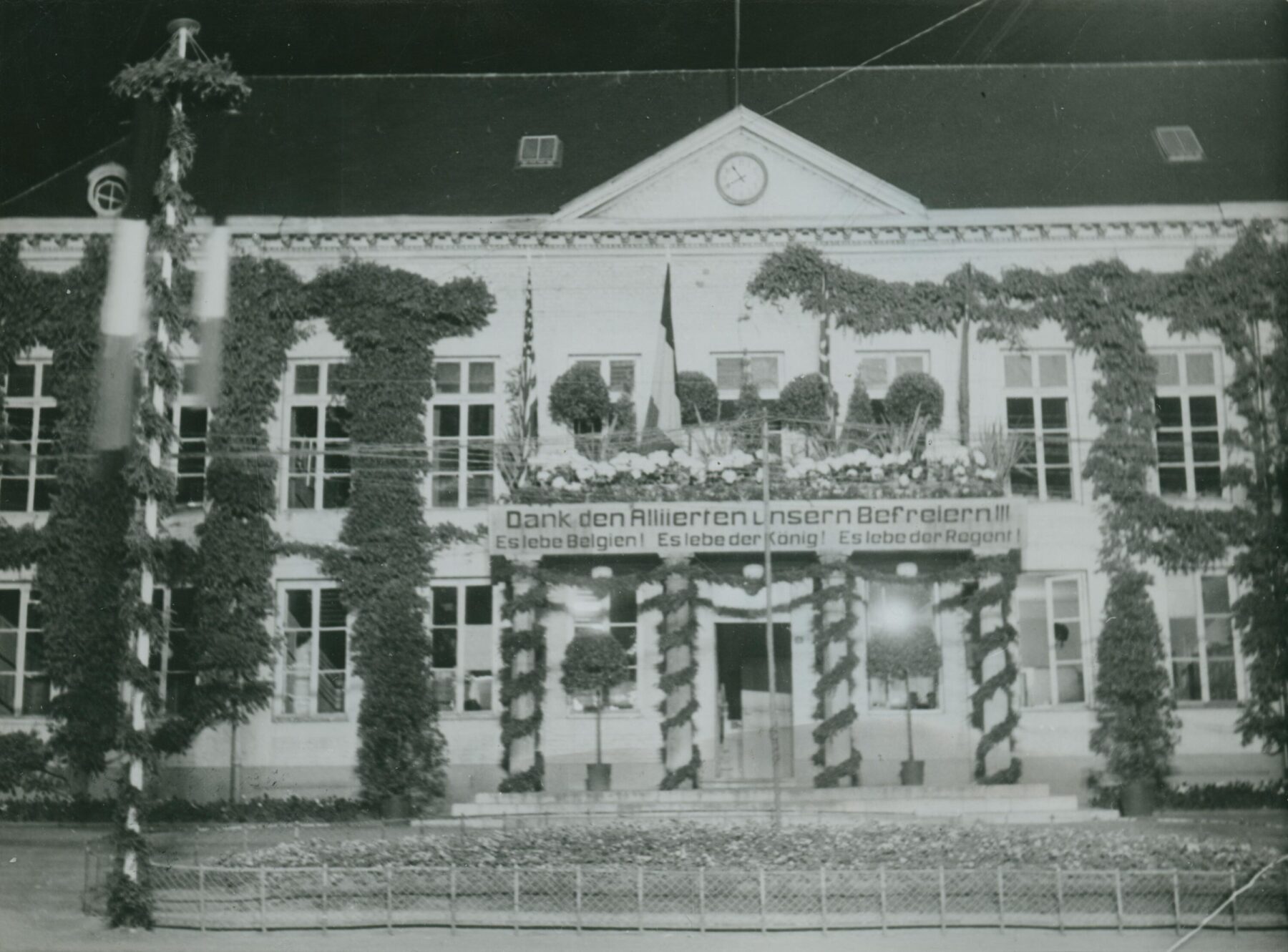If the Nazi state had closed the new border to Belgium from May 1940, stopped all French teaching, largely ‘Germanised’ public life and also Germanised French given names, the Belgian state now endeavoured to oust the German language from the region and to transform public life once again. The best means to achieve this appeared to be the Francisation of the youth through education, the intellectual orientation of the East Belgians towards the interior of Belgium, the spread of a strong Belgian nationalism, and the firm closure of the German-Belgian border in the post-war years. At the same time, quite a few East Belgians opted for ‘self-assimilation’, in part by rejecting the German language themselves, and sometimes deliberately adapting their German first names to French. ‘Dieter’ now became ‘Didier’; ‘Maria’ turned into ‘Marie’.
From the 1950s onwards, this policy met with sporadic resistance in East Belgium. This development received further drive from the 1960s onwards due to the tensions between Flemings and Walloons. Part of the young generation in East Belgium, in particular, realised that they were not on an equal footing with the Flemings and Walloons.
This development gave rise to two political camps: On the one side were the traditional parties, which initially urged, with only little self-confidence, for respect for the German language, as had been provided for by the definition of the language borders in 1962-63. On the other side were young politicians who, through the Party of German-speaking Belgians, founded in 1971, demanded immediate equal treatment and the same autonomy granted to Flemings and Walloons.
The Belgian politicians who sought to transform the central state into a federal state realised that respect for the culture of the other (Flemish, Walloons, bilingual Brussels and German speakers) was important. After all, culture is a form of expression of a person’s identity. The ‘Charter of the autochthonous national minorities/ethnic groups in Europe’ of the Federal Union of European Nationalisites (2006) substantiates this: Minority policy is active peace policy, contributes to cultural and linguistic richness, and supports people’s right to self-determination.
Until the turn of the millennium, these political disputes were controversial in East Belgium: some demanded equal say, others argued from a more cautious angle and intended to gain advantages for East Belgium through the good relations with the respective mother parties in Brussels by and by.
-
![Michel_Pauly]()
Michel Pauly
Opinion:
On the situation of linguistic minorities in Luxembourg:
‘In Luxembourg, there is a lot of discussion on how to deal with minorities. Besides a slight majority of Luxembourgers, there are large Portuguese, French, and Italian minorities, as well as countless smaller and smallest minorities, which all together form the Luxembourgish people. In addition, there are several hundred thousand cross-border commuters from France, Belgium, and Germany who come to Luxembourg every day to work. If the current massive immigration continues, the number of Luxembourgers in Luxembourg will fall below 50% in the next few years. Then the Luxembourgish people will only consist of minorities. Therefore, the question of how to deal with minorities in one’s own country is of existential importance. Theoretically in a few years, less than half of the people living in Luxembourg will then be entitled to vote, and this will lead to a democratic deficit in which one ancestral minority will rule over all the others. The claim that too few immigrants learn Luxembourgish – the language of integration into Luxembourg – is untrue, and can be dismissed out of hand by looking at statistics in this regard. Another fear of native Luxembourgers is that French, which is used throughout Luxembourg in various everyday situations, would displace Luxembourgish. This fear is irrational and based on feelings that can degenerate into ill-considered political adventures. However, this ‘horror scenario’ will not take place as long as Luxembourgish remains the language of integration and Luxembourg’s trilingualism is maintained.’


